
Find Help
More Items From Ergsy search
-

What are the proposed Cuts to Housing Benefits Amid Rising Rents?
Relevance: 100%
-

What is the relationship between rising rents and housing benefit cuts?
Relevance: 84%
-

What is the main reason for the proposed cuts to housing benefits?
Relevance: 75%
-
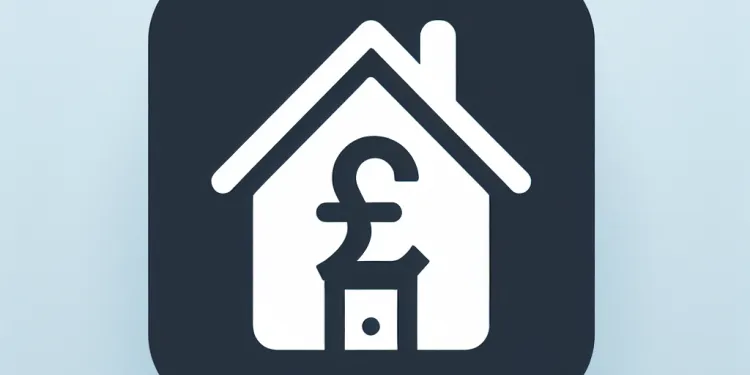
Who will be most affected by the proposed cuts to housing benefits?
Relevance: 71%
-

What are the potential long-term impacts of housing benefit cuts?
Relevance: 56%
-

How does inflation affect the situation with housing benefits and rents?
Relevance: 56%
-

Is there a plan to offer additional support to offset housing benefit cuts?
Relevance: 55%
-

Proposed Welfare Cuts and Their Impact on Vulnerable Populations
Relevance: 51%
-

Is there any legal recourse for those affected by the housing benefit cuts?
Relevance: 51%
-
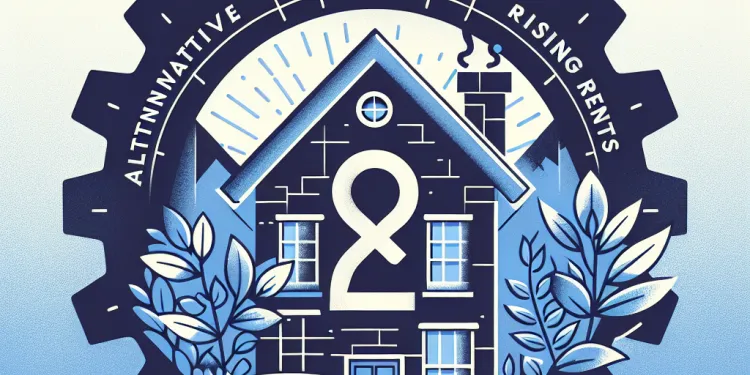
What alternative solutions are being discussed to combat rising rents?
Relevance: 51%
-

How can individuals contribute to the discussion on housing benefit cuts?
Relevance: 50%
-

When are the proposed cuts expected to take effect?
Relevance: 44%
-
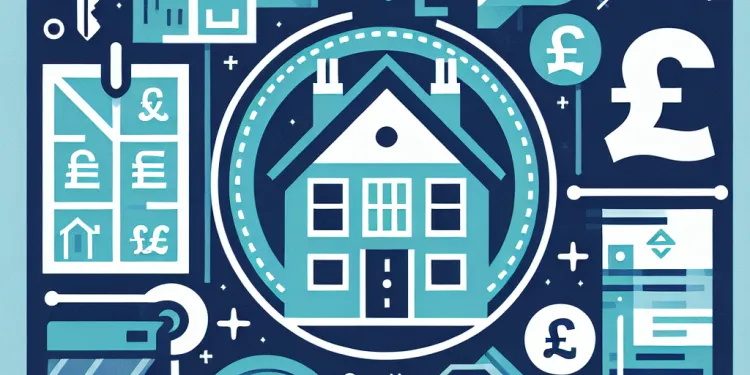
What measures are suggested to substitute the housing benefits?
Relevance: 42%
-
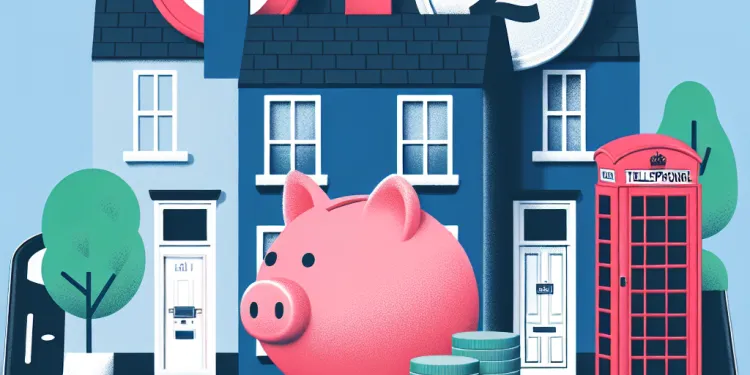
How will the proposed cuts impact tenants?
Relevance: 42%
-
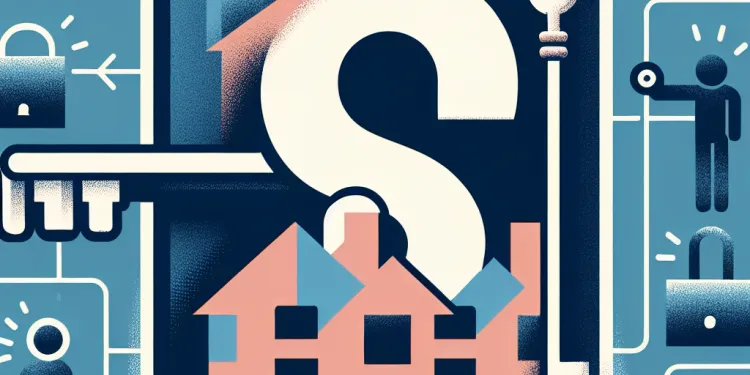
How have housing benefit recipients reacted to the proposed changes?
Relevance: 42%
-

Are there any groups exempt from the proposed cuts?
Relevance: 42%
-

What role do housing associations have amid these cuts?
Relevance: 40%
-

What can tenants do if they are affected by the cuts?
Relevance: 38%
-

How will the cuts impact landlords?
Relevance: 37%
-
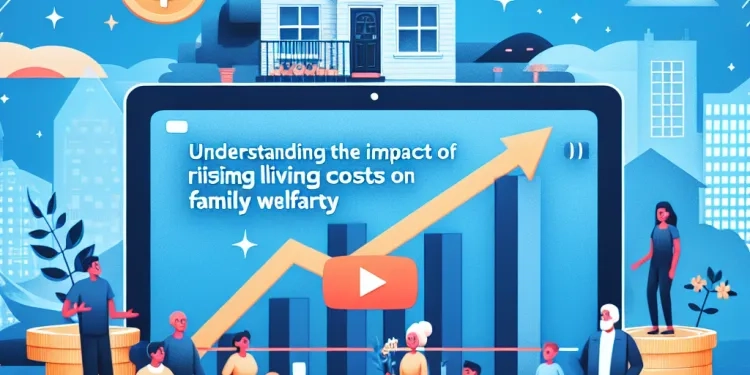
Understanding the Impact of Rising Living Costs on Family Welfare
Relevance: 34%
-

How does the reform impact renting costs?
Relevance: 34%
-

How are rent increases regulated under the new law?
Relevance: 34%
-

Pension Proposals Spark Debate on Retirement Age and Benefits
Relevance: 31%
-

Is there assistance available for rent or mortgage payments?
Relevance: 30%
-

Why is there a call for public consultation regarding the cuts?
Relevance: 29%
-

Impact of UK Housing Crisis on Local Communities
Relevance: 29%
-

House Prices Soar: First-Time Buyers Share Their Stories
Relevance: 29%
-
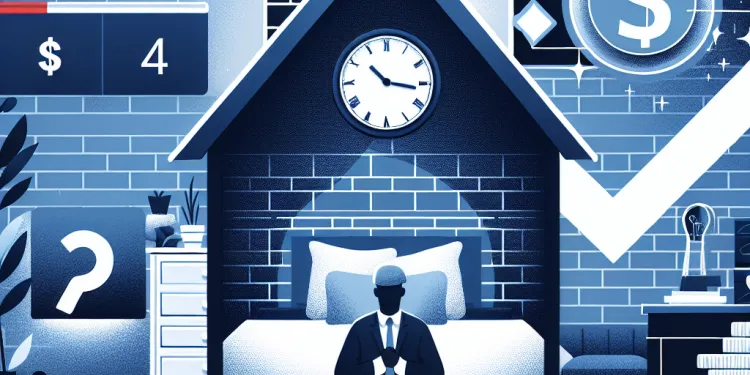
Addressing the Rising Homelessness Crisis
Relevance: 28%
-

Addressing the Housing Crisis: Current Challenges and Solutions
Relevance: 28%
-
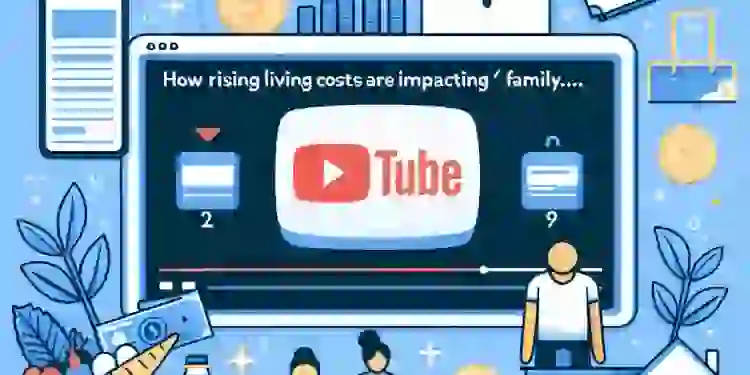
How Rising Living Costs Are Impacting Family Wellbeing
Relevance: 28%
-

How do the reforms affect housing benefit tenants?
Relevance: 28%
-

Addressing the Rising Cost of Living: Community Support and Resources
Relevance: 28%
-

What changes affect pet policies in rented homes?
Relevance: 26%
-

Are there any international examples being considered in handling housing benefit issues?
Relevance: 26%
-

New Government Benefits for Low-Income Families
Relevance: 26%
-

Impact of Rising Living Costs on Family Health
Relevance: 26%
-

Impact of Housing Shortage on Local Communities
Relevance: 25%
-

Rising Cost of Living: How Families Can Cope
Relevance: 25%
-

What housing assistance options are available for seniors?
Relevance: 25%
-

What advocacy efforts are being undertaken to resist the cuts?
Relevance: 25%
Understanding the Proposed Cuts to Housing Benefits
In recent times, the UK government has faced scrutiny for its proposed changes to housing benefits, particularly as rents continue to rise across the country. These proposed cuts seek to adjust the financial support provided to low-income individuals and families who are struggling to afford housing costs. The changes have sparked significant debate among policymakers, housing advocates, and the public.
The Context: Rising Rents in the UK
The UK housing market has experienced a significant rise in rents over recent years, largely driven by increased demand, limited supply, and economic factors such as inflation. Many regions, particularly London and the South East, have seen rents escalate to levels that are unaffordable for low- to middle-income earners. This trend has increased the reliance on housing benefits to close the gap between what individuals can afford and the actual cost of rent in the private sector.
Details of the Proposed Cuts
The proposed cuts to housing benefits are part of a broader government initiative to reduce welfare spending. One of the key changes under consideration is the freezing of the Local Housing Allowance (LHA) rates. These rates are used to calculate the amount of housing benefit that individuals are entitled to in the private rental sector. By freezing LHA rates, the amount of benefit received by claimants would no longer rise in line with increasing rents, effectively reducing the financial assistance available over time.
Additionally, there are discussions about introducing stricter eligibility criteria and assessment processes for housing benefit claimants. This would potentially reduce the number of individuals who qualify for housing support, further decreasing government expenditure on welfare programs.
Implications for Tenants and the Wider Community
The proposed cuts to housing benefits could have significant implications for tenants, particularly those on low incomes who are already struggling to make ends meet. With rental costs rising and benefits potentially frozen, there is a risk of increased evictions, homelessness, and financial hardship among the most vulnerable populations. Such outcomes could place additional strain on local councils, charities, and support services tasked with addressing housing insecurity and homelessness.
Moreover, the broader community could also feel the impact. Reduced government support might lead to a decrease in consumer spending as more of individuals' income is directed towards housing costs, which could, in turn, affect economic growth and stability. Housing advocacy groups are calling for a reevaluation of the proposed changes, urging the government to consider the long-term consequences for society.
Conclusion
The debate over housing benefits and rising rents in the UK highlights the complexities of balancing economic policy with social welfare needs. As the government considers implementing these proposed cuts, the conversation around housing affordability, welfare support, and economic strategies continues, reflecting the urgent need for sustainable solutions to address the housing crisis.
Understanding the Proposed Cuts to Housing Benefits
The UK government wants to change housing benefits. These benefits help people with low incomes pay for where they live. Many people are upset about these changes. This is because rent prices keep going up.
The Context: Rising Rents in the UK
In the UK, rent prices have gotten much higher. This is because a lot of people want houses, and there are not enough of them. Money problems like inflation also make rent go up. In places like London, rent is very expensive. Many families rely on housing benefits to help them pay for rent.
Details of the Proposed Cuts
The government wants to spend less money on welfare. One idea is to freeze the Local Housing Allowance (LHA). This means the money people get for housing help won't increase, even if rent goes up. This can mean people will get less help over time.
There is also talk about making it harder to get housing benefits. This means fewer people will qualify for help paying rent.
Implications for Tenants and the Wider Community
The changes could be hard for people with low incomes. If rent goes up but benefits do not, people might lose their homes. More people could become homeless. Charities and local councils might have to help more people.
This change could also affect everyone. If people have to spend more money on rent, they will have less money for other things. This could hurt the economy. People are asking the government to think carefully about these changes.
Conclusion
Talking about housing benefits and rent is important. The government needs to think about helping people with money problems while also saving money. It is important to find good solutions to the housing problem.
Frequently Asked Questions
What is the main reason for the proposed cuts to housing benefits?
The main reason for the proposed cuts is to reduce government expenditures and address budgetary constraints.
Who will be most affected by the proposed cuts to housing benefits?
Low-income individuals and families who depend on housing benefits are likely to be most affected.
How will the proposed cuts impact tenants?
Tenants may face difficulties in affording rent payments, potentially leading to increased housing insecurity or homelessness.
When are the proposed cuts expected to take effect?
The timeline for the cuts taking effect depends on the legislative process and government decisions.
Are there any groups exempt from the proposed cuts?
Some vulnerable groups, such as the elderly or disabled, might be exempt or given special considerations.
What measures are suggested to substitute the housing benefits?
Suggestions include increasing the supply of affordable housing, providing rent controls, or offering targeted assistance programs.
What can tenants do if they are affected by the cuts?
Tenants may need to seek financial counseling, explore alternate housing options, or apply for any supplementary assistance available.
What role do housing associations have amid these cuts?
Housing associations might need to adjust rent policies or work with local governments to provide support to affected tenants.
How have housing benefit recipients reacted to the proposed changes?
There is likely concern and opposition among recipients, as the changes could significantly impact their housing stability.
What alternative solutions are being discussed to combat rising rents?
Discussions include rent control policies, incentives for affordable housing development, and stricter regulations on rent increases.
Is there any legal recourse for those affected by the housing benefit cuts?
Legal challenges might be mounted, especially if cuts are deemed discriminatory or violate existing legal protections.
How will the cuts impact landlords?
Landlords might experience increased rent arrears or face pressure to reduce rents, impacting their rental income.
Is there a plan to offer additional support to offset housing benefit cuts?
Any additional support would depend on forthcoming government policies, possibly including increased funding for housing programs.
What are the potential long-term impacts of housing benefit cuts?
Long-term impacts could include a rise in homelessness, increased demand for social housing, and broader economic strain on low-income households.
Why is there a call for public consultation regarding the cuts?
Public consultation is important to gather feedback and consider the impacts on affected communities, ensuring a balanced approach.
How can individuals contribute to the discussion on housing benefit cuts?
Individuals can contribute by participating in consultations, engaging with local representatives, or joining advocacy groups.
What is the relationship between rising rents and housing benefit cuts?
Rising rents increase dependency on housing benefits, and cuts to these benefits exacerbate the inability to afford housing.
Are there any international examples being considered in handling housing benefit issues?
Countries with effective social housing policies or rent control measures, like Germany or the Netherlands, are often considered for reference.
How does inflation affect the situation with housing benefits and rents?
Inflation increases the cost of living, including rent costs, which can make housing benefits insufficient without adjustments.
What advocacy efforts are being undertaken to resist the cuts?
Advocacy efforts include campaigns by housing charities, public protests, and lobbying by tenant rights groups to resist the cuts.
Why do they want to give less money for housing?
The government wants to spend less money because they don't have enough. That's why they want to make cuts.
Who will be most hurt by the government plan to give less money for housing?
People who don't have a lot of money and need help paying for their homes might have the hardest time.
How will the planned cuts affect people who rent homes?
Let's look at what happens if there is less money.
- Some services might not be as good. This could mean repairs take longer.
- Things like community activities might have less funding.
- It could be harder for people to get help if there is a problem.
Here are some ways to get support:
- Ask for help from your local support group.
- Talk to a friendly neighbor or family member.
- Find out if there are online resources or phone services that can help.
People who rent homes might sometimes have trouble paying rent, which can make it hard for them to keep a place to live. Sometimes, this can even lead to losing their home.
If you or someone you know is having trouble, it's okay to ask for help. Talk to a trusted adult or someone who helps in your community.
When will the planned cuts start?
We want to know when the cuts will begin. "Cuts" means stopping some money from being spent.
Helpful Tip: If this question is hard, you can ask someone to read it with you. Using a calendar can help you understand when things happen.
The time when the cuts will happen depends on how fast the government makes decisions and new rules.
Who does not have to worry about the suggested cuts?
Some people, like older adults or those with disabilities, might not have to follow the same rules. They might get special help.
What can we do instead of housing benefits?
We can help by doing a few things. We could build more houses that people can afford. We could make rules so rent doesn't go up too much. We could also give special help to those who need it.
What can renters do if their money is cut?
If the government is giving less money, here is what renters can do:
- Talk to your landlord: Tell your landlord about the money problem. Maybe they can help you.
- Make a budget: List what you need to buy and plan your spending. This way you know where your money goes.
- Get advice: Talk to someone who knows about money, like a support worker or at a local advice center. They can give you ideas to help.
- Check benefits: Make sure you are getting all the help you can from the government. Use websites that check benefits for you.
- Support groups: Join groups online or in your area to talk with other renters. They might have tips to share.
Simple tools like a calendar for planning and a calculator can help. Parents or friends can also help you understand things better.
People who rent homes might need help to manage their money. They can talk to someone who can give them advice. They can also look for other places to live. Sometimes, there is extra help they can apply for.
What do housing associations do when there are cuts?
Housing groups might need to change their rent rules or work with local councils to help people living in their homes.
What do people getting housing benefit think about the changes?
People are upset and worried. The changes might make finding a home harder for them.
What are people talking about to help with high rents?
People are talking about ways to make homes cheaper. They talk about:
- Rules to keep rent prices low.
- Giving rewards to build more low-cost homes.
- Making new rules so rent can’t go up too fast.
Tools like Read & Write can help make reading easier. Taking breaks and reading with someone else can also help.
Can people get help if money for housing is cut?
If the government gives you less money for your house, you can ask for help. Here are some ways:
- Talk to a lawyer: A lawyer knows the law and can help you understand your rights.
- Seek advice: You can talk to a support worker or advisor who can guide you.
- Request more money: Sometimes, you can ask for extra help if you need it.
- Use online tools: There are websites and apps that can offer support or advice.
Remember, you are not alone. There are people and places that can help you.
There might be legal problems if the cuts are unfair or break the law. People might try to stop the cuts in court.
What will happen to landlords because of the cuts?
Renters might have trouble paying rent, so landlords may get less money. They might also have to lower the rent, which means they earn less.
Will there be extra help because of housing benefit cuts?
Sometimes, benefits for housing get cut. This means people might get less money to help pay for their homes. We want to know if there will be more help for people who need it.
Some tools and tricks can help if you find reading hard:
- Ask someone to read with you.
- Use a ruler or your finger to follow words as you read.
- Try audio books to listen to stories and information.
More help from the government will depend on new rules they make. They might give more money to help with housing.
What can happen if housing benefits are reduced for a long time?
In the future, more people might not have homes. More will need help to find places to live. This can make life harder for families that do not have much money.
Why do people want to talk about the cuts?
People want to talk about cuts to understand them better.
Talking helps everyone share their ideas.
This way, everyone can say what they think.
If you find reading hard, you can use tools to help:
- Ask someone to read it to you.
- Use a computer to read it out loud.
- Use simple pictures to help understand.
Talking to the public is important. It helps us hear what people think and how they feel. We can then make better choices that help everyone.
How can people join the talk about cutting money for housing?
Here are some ways you can join in:
- Talk to others: Share your ideas with friends and family.
- Write letters: Send letters to your local newspaper.
- Join meetings: Go to local meetings about housing.
- Use social media: Post your thoughts online.
Some helpful tools and tips:
- Use simple words: Keep your words easy to understand.
- Ask questions: Ask if you don’t understand something.
- Draw pictures: Use pictures to show your ideas.
You can help by joining in talks, talking to local leaders, or being part of groups that support good causes.
How do higher rents and cuts to housing benefits connect?
When rents go up, more people need help to pay for housing. If these benefits are cut, it makes it even harder for people to pay for a place to live.
Do other countries have ideas for solving housing money problems?
Countries like Germany or the Netherlands have good ways to help people find affordable homes. People often look at what these countries do to get ideas.
What happens to housing help and rent when money loses value?
Inflation means that money doesn't buy as much as it used to. This can make things more expensive.
When prices go up, rent can also get higher. People might need more money to pay for their housing.
Housing benefits are the extra money the government gives to help pay for rent. If rents go up, people might need more help.
To make things easier, you can:
- Ask someone to explain tough words.
- Use pictures to help understand the topic.
- Break down the topic into smaller parts.
When prices go up, people have to pay more to live. This includes paying more for rent. If the money people get for housing help does not change, it might not be enough to pay for the higher rent.
Here are some things that can help:
- Use a calculator to help with budgeting.
- Find apps that help with saving money.
- Talk to someone who can give advice about money.
What are people doing to stop the cuts?
People are working together to stop cuts. They speak up to say why cuts are bad. They write letters, make calls, and meet leaders. They also join groups to work together.
Tools that can help:
- Ask a friend or helper to read the question with you.
- Use pictures to understand what "cuts" mean.
- Talk about it with someone you trust.
There are many ways people can speak up and help. Housing charities are organizing events, people are coming together for big meetings and marches, and groups that support people who rent homes are talking to important people to stop the cuts.
Useful Links
This website offers general information and is not a substitute for professional advice.
Always seek guidance from qualified professionals.
If you have any medical concerns or need urgent help, contact a healthcare professional or emergency services immediately.
- Ergsy carfully checks the information in the videos we provide here.
- Videos shown by Youtube after a video has completed, have NOT been reviewed by ERGSY.
- To view, click the arrow in centre of video.
- Most of the videos you find here will have subtitles and/or closed captions available.
- You may need to turn these on, and choose your preferred language.
- Go to the video you'd like to watch.
- If closed captions (CC) are available, settings will be visible on the bottom right of the video player.
- To turn on Captions, click settings .
- To turn off Captions, click settings again.
More Items From Ergsy search
-

What are the proposed Cuts to Housing Benefits Amid Rising Rents?
Relevance: 100%
-

What is the relationship between rising rents and housing benefit cuts?
Relevance: 84%
-

What is the main reason for the proposed cuts to housing benefits?
Relevance: 75%
-

Who will be most affected by the proposed cuts to housing benefits?
Relevance: 71%
-

What are the potential long-term impacts of housing benefit cuts?
Relevance: 56%
-

How does inflation affect the situation with housing benefits and rents?
Relevance: 56%
-

Is there a plan to offer additional support to offset housing benefit cuts?
Relevance: 55%
-

Proposed Welfare Cuts and Their Impact on Vulnerable Populations
Relevance: 51%
-

Is there any legal recourse for those affected by the housing benefit cuts?
Relevance: 51%
-

What alternative solutions are being discussed to combat rising rents?
Relevance: 51%
-

How can individuals contribute to the discussion on housing benefit cuts?
Relevance: 50%
-

When are the proposed cuts expected to take effect?
Relevance: 44%
-

What measures are suggested to substitute the housing benefits?
Relevance: 42%
-

How will the proposed cuts impact tenants?
Relevance: 42%
-

How have housing benefit recipients reacted to the proposed changes?
Relevance: 42%
-

Are there any groups exempt from the proposed cuts?
Relevance: 42%
-

What role do housing associations have amid these cuts?
Relevance: 40%
-

What can tenants do if they are affected by the cuts?
Relevance: 38%
-

How will the cuts impact landlords?
Relevance: 37%
-

Understanding the Impact of Rising Living Costs on Family Welfare
Relevance: 34%
-

How does the reform impact renting costs?
Relevance: 34%
-

How are rent increases regulated under the new law?
Relevance: 34%
-

Pension Proposals Spark Debate on Retirement Age and Benefits
Relevance: 31%
-

Is there assistance available for rent or mortgage payments?
Relevance: 30%
-

Why is there a call for public consultation regarding the cuts?
Relevance: 29%
-

Impact of UK Housing Crisis on Local Communities
Relevance: 29%
-

House Prices Soar: First-Time Buyers Share Their Stories
Relevance: 29%
-

Addressing the Rising Homelessness Crisis
Relevance: 28%
-

Addressing the Housing Crisis: Current Challenges and Solutions
Relevance: 28%
-

How Rising Living Costs Are Impacting Family Wellbeing
Relevance: 28%
-

How do the reforms affect housing benefit tenants?
Relevance: 28%
-

Addressing the Rising Cost of Living: Community Support and Resources
Relevance: 28%
-

What changes affect pet policies in rented homes?
Relevance: 26%
-

Are there any international examples being considered in handling housing benefit issues?
Relevance: 26%
-

New Government Benefits for Low-Income Families
Relevance: 26%
-

Impact of Rising Living Costs on Family Health
Relevance: 26%
-

Impact of Housing Shortage on Local Communities
Relevance: 25%
-

Rising Cost of Living: How Families Can Cope
Relevance: 25%
-

What housing assistance options are available for seniors?
Relevance: 25%
-

What advocacy efforts are being undertaken to resist the cuts?
Relevance: 25%


